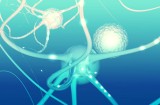
It’s important to have a baseline assessment of your brain before an injury.
We believe that every person is entitled to know the extent and location of the damage done to their own brain.
What is a Concussion?
A concussion is a traumatic brain injury that affects both the composition of the brain and the way it functions. Typical symptoms include, but are not limited to: problems with memory, concentration, decision making, headache, fatigue, confusion, mood, sleep, dizziness, balance, vision, and nausea.
Many people once believed that concussions only resulted from extreme blows to the head and required a loss of consciousness. We now understand that this is simply not true; concussions can occur from light impacts to the head or even shaking, and some have no symptoms at all.

We are able to measure and compare changes in your brain’s electrical activity, so having a baseline allows us see the difference if you have an injury.
Every concussion injures your brain to some extent. Doctors used to believe that a concussion was a temporary, short-lived injury (7-10 days) and that the brain was healed after many of the effects went away. We now understand that changes to the brain can last for months or even years following a concussion. Everyone recovers differently from concussion, which makes it even more important to understand how your concussion is affecting your brain.
Why get a Baseline qEEG?
The standard approach for concussions has remained largely the same for the past two decades. This is shocking, given the amount of recent research that has changed our understanding of what is happening to the brain. Studies now show that qEEG is sensitive not only to the presence or absence of a concussion, but also to the degree of damage in the brain.
By getting an initial qEEG baseline, we are then able to compare changes in your brain post concussion or head injury.
How can neuroAgility help?

We care about providing you with an understanding of your brain before and after the injury.
We are not only interested in alleviating your symptoms of concussion. We care about providing you with an understanding of your brain before and after the injury. Most importantly, we care about restoring your brain back to its peak functional performance (memory, concentration, sleep, etc.), as well as repairing the engine beneath the hood (your brain). Our highly trained staff has extensive experience. Dr. Steve Stockdale is a national expert in qEEG data analysis and interpretation. Our medical director, Dr. Earle Shugerman, has worked in qEEG for the past two decades. All of our clinicians are master’s degree level. We take an integrative team approach to developing your most accurate baseline assessment.
How can I learn more about this?
We have provided additional research articles below that explain the use of qEEG and neurotherapy for concussion diagnoses and rehabilitation in more detail.
- “Concussion in athletics: ongoing clinical and brain imaging research controversies,” Springer Science+Business Media, LLC 2012
- “Clinical Advantages of Quantitative Electroencephalogram (QEEG)–Electrical Neuroimaging Application in General Neurology Practice,” EEG and Clinical Neuroscience Society (ECNS) 2013
- “The Usefulness of Quantitative EEG (QEEG) and Neurotheraphy in the Assessment and Treatment of Post-Concussion Syndrome,” Clinical EEG and Neuroscience, Oct 2004
If you would like to consult a clinician, or simply receive more information, please contact us directly.
Kerri Honaker, Executive Director 303–417–1797x3 KHonaker@neuroAgility.com
*neuroAgility, PC provides this service at a friendly cost. We take concussions and head injury seriously. We are concerned with contact sports as athlete performance is one of our specialty areas.

